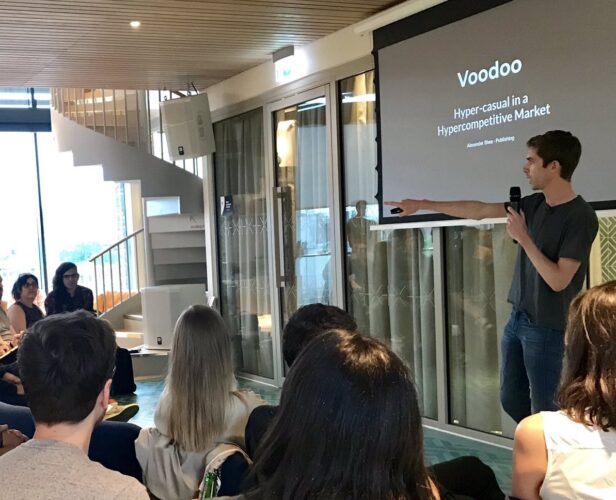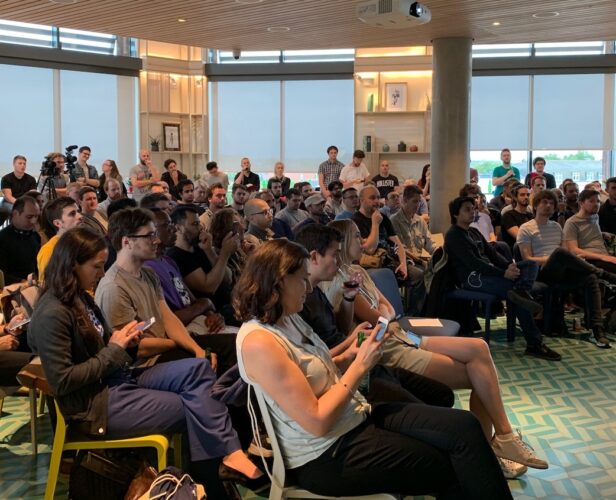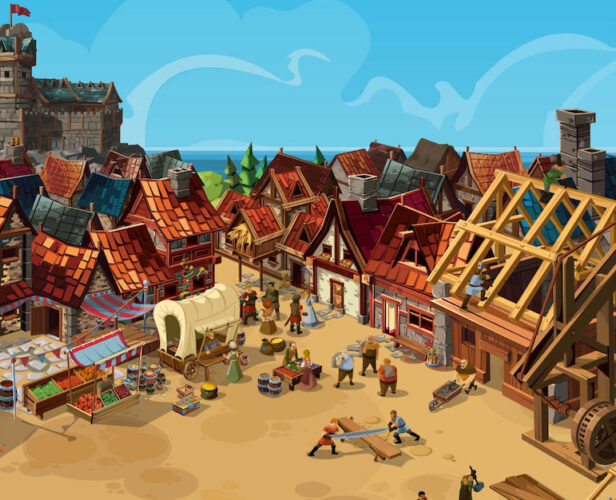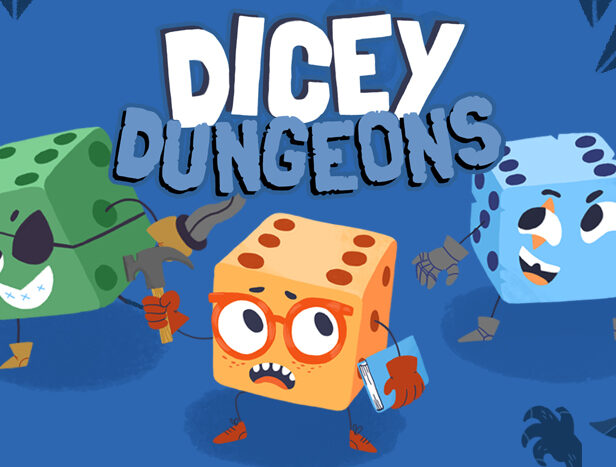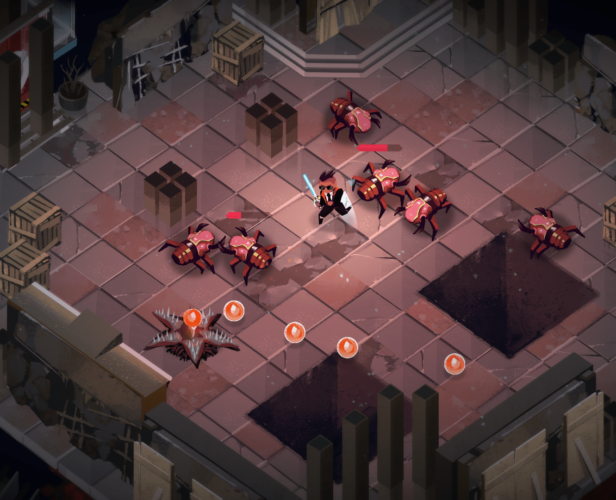Category
Strategies
#Game Mechanics
Using Music As A Core Mechanic: Insights from Amanotes
Just like gaming, music in itself is its own career and specialty. And unless you’ve studied both gaming and music in your life, then combining the two together can be seen as a massive challenge. So for this post, we’ve spoken to music gaming industry specialists, Amanotes, about the key steps and top tips developers should know when making their own music games. (This will be the first of a series – watch this space for our next blog on music in gaming). If you want to skip to a specific section, feel free to do so here: Why use music as a core mechanic? Different ways you can use music as a core mechanic Things to keep in mind when making your game Useful resources Now that introductions are out the way, we’ll let Amanotes take the mic. Why...
#Marketing & Publishing
Hyper-casual in a Hyper-competitive Market – Voodoo
In this talk, our audience learned just what exactly is Voodoo’s development approach, what their publishing agreement is, and what metrics they care about. You’ll learn from start to finish, the journey of a viral hit (looking specifically at AquaPark). If you fancy watching the other talks from this event, you can find them here: How We Found A Hyper-Casual Niche – Platonic Games The Latest Trends for Hyper-Casual Games – GameAnalytics
#Marketing & Publishing
Making Hit Casual Games Event – Voodoo, Platonic Games & GameAnalytics
If you’ve been following our blog, email, or social channels recently, then you may have heard the words ‘Arcade (R)Evolution’ or ‘Making Hit Casual Games’ been muttered about once or twice. But what exactly is this? And what does this mean for you? In short, we’re hosting a series of GameAnalytics events (alongside numerous partner speakers from leading studios/publishers) around casual mobile games (called the Arcade (R)Evolution), and we’ve just held the first one of this series last week. If you were able to join us, brilliant! And thanks so much for coming. If you were sadly busy, then no worries, next time. But whether you want to catch up on missed content, or are eager to relive the evening, we’ve recorded each talk and shared the slides from this event below. Before you dig in, here is some more...
#Marketing & Publishing
Studio Spotlight: Lessons From Goodgame Studios
Thanks for sitting down and chatting with us today. Before we get started, are you able to give us a brief history of Goodgame Studios? Of course. The Wawrzinek brothers (Kai and Christian) and their friend Fabian Ritter founded Goodgame Studios back in 2009. Within the first year, the studio launched 3 games, and quickly grew to around 100 employees. We’re amazed at how successful our games have been these past few years. In 2012, our free-to-play real-time strategy game, Goodgame Empire, received a European Games Award in the “Best Browser Game” category. And in that time, we also hit our first ever milestone – 100 million players. 5 years later, we reached yet another milestone as we generated $800 million in revenue (yes, we definitely popped open a bottle of champs). Our most recent news would be our acquisition...
#Game Design
How To Create “Hyper-Snackable” Casual Games
With more games on the market than ever before, there is little doubt that developers need to be increasingly innovative when designing the next hit hyper-casual title. There are however a few simple game design aspects to consider that can increase your likelihood of success. A concept that we’ve been discussing with Voodoo partners to help address this with actionable steps is the notion of “snackability”. Many casual gamers often only play mobile games when they’re out and about, commuting, queuing, or simply have a couple of spare minutes waiting for the microwave to finish. When we consider the broadest demographic of gamers, the majority of players prefer games that they can easily pick up and put down without feeling overly committed, but with enough excitement to keep them coming back for more. This is where ‘snackable’ games come in....
#Ads & Monetization
15 Ad-Tech Terms Every Mobile Game Developer Should Know
Ad-tech is starting to get all the more significant in the mobile games industry, so it’s important that you’re schooled up. To give you a hand, we’ve put together some of the top key terms you need to be familiar with, in alphabetical order (feel free to bookmark this page, by the way, as we’ll likely keep this updated with new terms we come across). Ad exchange Online marketplaces where publishers, advertisers, agencies, ad networks, DSPs and SSPs can buy and sell ad inventory from each other. Ad fraud Ad fraud is when an advert says it’s been seen, but a human has never actually looked at the ad. And the reason why it’s fraud is because there’s still a cost attached to this impression. Ad inventory The total amount of space a publisher has available on their site or...
#Marketing & Publishing
3 Strategies to Grow Gamers’ Loyalty and Retention Rate
We gamers are a fickle bunch. For a lot of mainstream gamers, “Shiny New Toy” syndrome is all too prevalent. However, some of the older and more dedicated players can easily sit down with the same title they’ve been playing for years and still have a blast. Such is the gaming scene. So amidst this, how do you foster loyalty among your gaming audience? And how can you make sure they keep coming back? There are a few things that you can do, and luckily for you, we’ve listed 3 of them below… 1. Pay Attention to Your Audience As a game developer, one of the worst things you can do is overlook valuable feedback from your players. While playing through your game, your players will push the boundaries of all your design choices, and will almost always find something...
#Data & Analytics
Blue-Green Deployments on Terraform (For 850 Million Monthly Active Players)
In this post, you'll get a sneak peak into how we improved our infrastructure deployment practices, all by utilising the “Blue-Green deployment approach”.
#Marketing & Publishing
Referral Marketing For Mobile Games: How To Grow Your Game With Referrals
Editor’s Note: this post was originally published by Ben Meakin, Content Marketer at Megacool. With over ten years of experience writing for and about games, Ben has a strong understanding of what games need to do to succeed. Referrals are one of the most cost-effective ways to grow your game, and should play a major role in your marketing strategy. They are a gateway into your game for new players, and, with a little effort, can deliver huge rewards for developers. Yet referrals are an opportunity that are still not widely maximized by game developers. In this post, we’ll take a look at the various ways to implement referrals in mobile games, and some best-in-class examples. In its most basic form, a referral is an Invite Friends button within a game that lets players share a short message to social media...
#Game Deconstructions
How Enemy AI Works In Dicey Dungeons
Editor’s Note: this post was originally published by Terry Cavanagh, indie game designer currently working on Dicey Dungeons. To stay up to date with what Terry is currently working on, your can find him on Twitter, or follow his other projects on his website here. For the past month or so, I’ve been tackling one of the biggest technical problems in my new game, Dicey Dungeons – improving the enemy AI enough for the final release of the game. It’s been pretty interesting, and lots of it was new to me, so I thought I’d write a little bit about it. First up, a sort of disclaimer: I’m not a computer scientist – I’m just one of those people who learned enough about programming to make video games, and then stopped learning anything I didn’t have to learn. I can usually muddle...
#Marketing & Publishing
3 Creative Ways To Build Your Community Before Launching Your Game
Building a community for your game can be tricky, especially when you’re still working away on the core features of your project. And one of the biggest questions developers ask themselves is ‘how can I get people talking about my game before I’ve even launched it?’. There’s no straight answer to this question, but there is a ton of useful advice out there. To help get your creative juices flowing, we’ve found 3 unique stories where developers went the extra mile to build their community, and what their thought process was when doing so. You’ll want to make sure to primarily use these case studies as inspiration for your own development. Who knows, there may be even better creative routes hiding away in the back of your mind that are more specific to your game. What can I learn at...
#Marketing & Publishing
Boyfriend Dungeon: The Secrets Of Their Email Marketing Strategy
Editor’s Note: this post was originally published by Chris Zukowski, Creative Director at Return to Adventure Mountain, who also developers games that are bizarre twists on classic genres. You’ll recognise his work in titles such as Return of the Zombie King and Wizard Golf RPG. Boyfriend Dungeon is an indie game being developed by Kitfox Games about dating luxuriously beautiful weapons and then using them to fight monsters. It was originally announced back in October 2017. On August 15th of 2018, the Kitfox team launched a Kickstarter for the game. The Kickstarter took the internet by storm and went totally viral on social media. The Boyfriend fever even reached as far as general interest magazines like Gentleman’s Quarterly. The game was funded within hours and when the Kickstarter ended 30 days later it earned 4x its initial goal. The team executed...
#Game Deconstructions
Key Lessons From Studio Q – BitMango Interview
After the launch of one of their biggest games, I spoke with Sung-Ku Kim, Director of Studio Q at BitMango, to understand more about the history of the company, and key lessons the studio learned on their path to success. Before we dig into the details, are you able to give us some background into how BitMango started? BitMango has had an interesting journey actually. We originally started out as a subsidiary of a company called Datawave, which was mainly focused on keyword search ads. The CEO of Datawave, Kisup Lee, was inspired by the gaming industry, and so looked to invest in it. And that’s where BitMango came in. To enter such a competitive market, we really had to maximize our data analysis capabilities and use key metrics to monitor the performance of our games – which was our...

